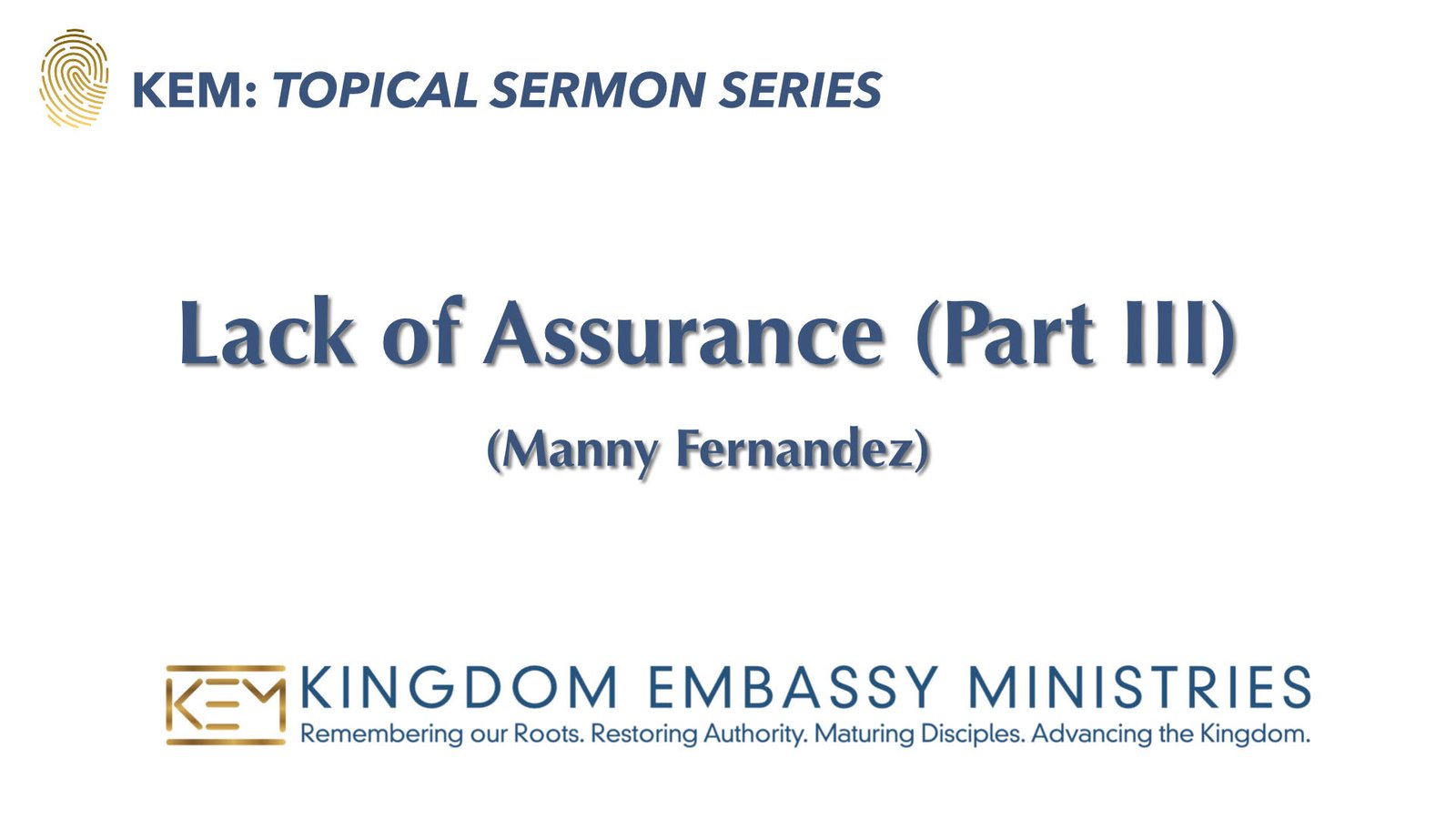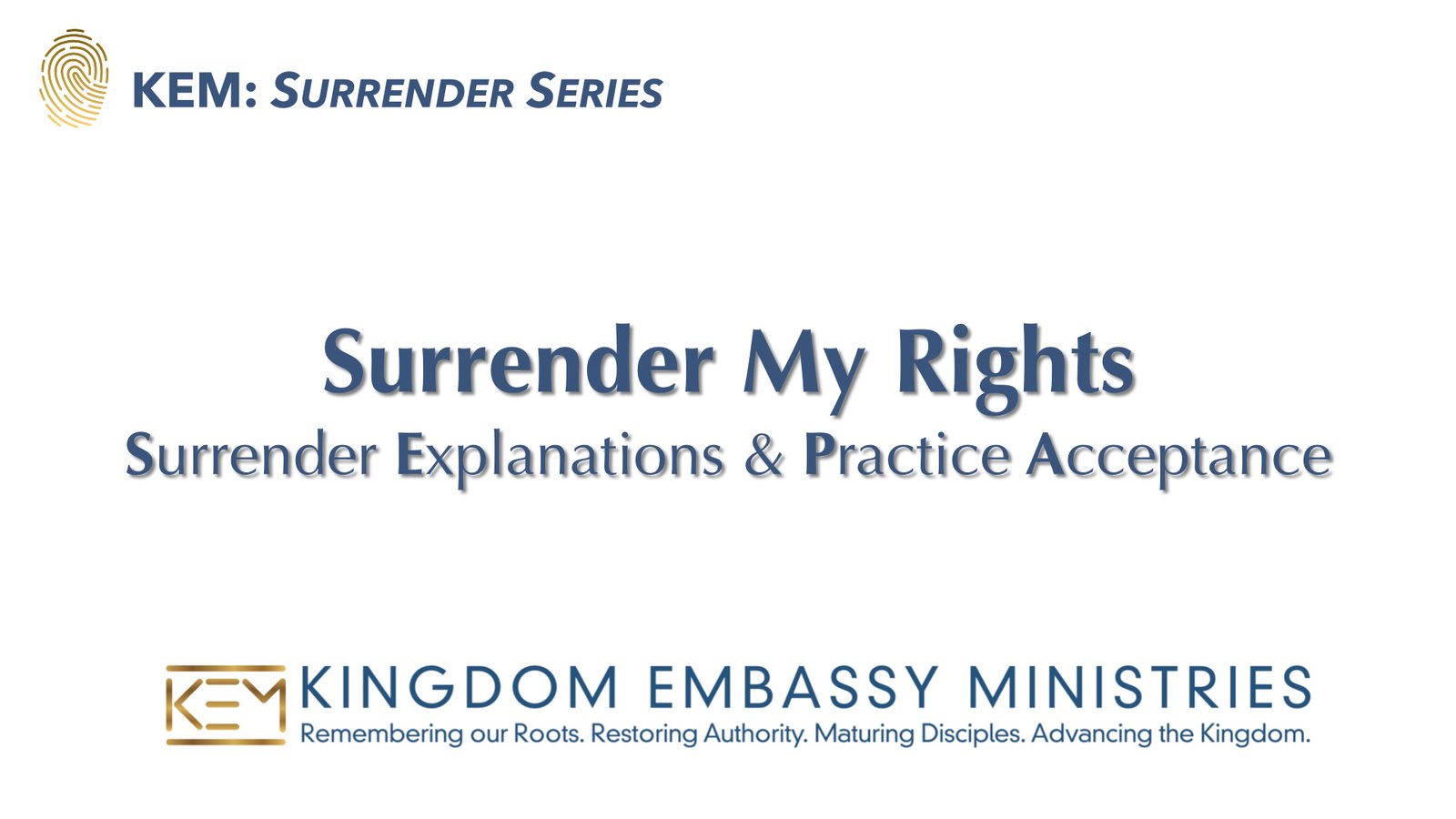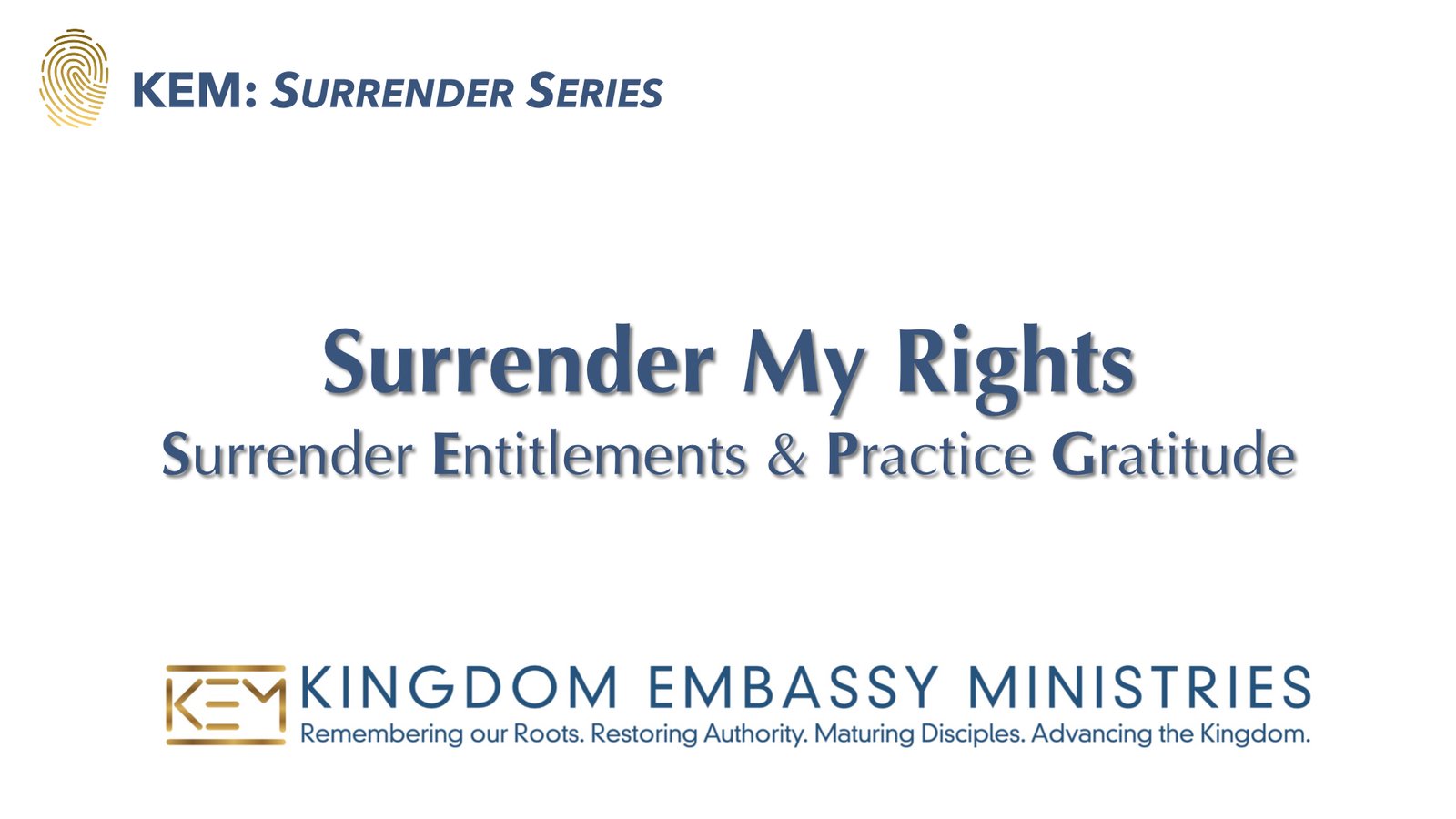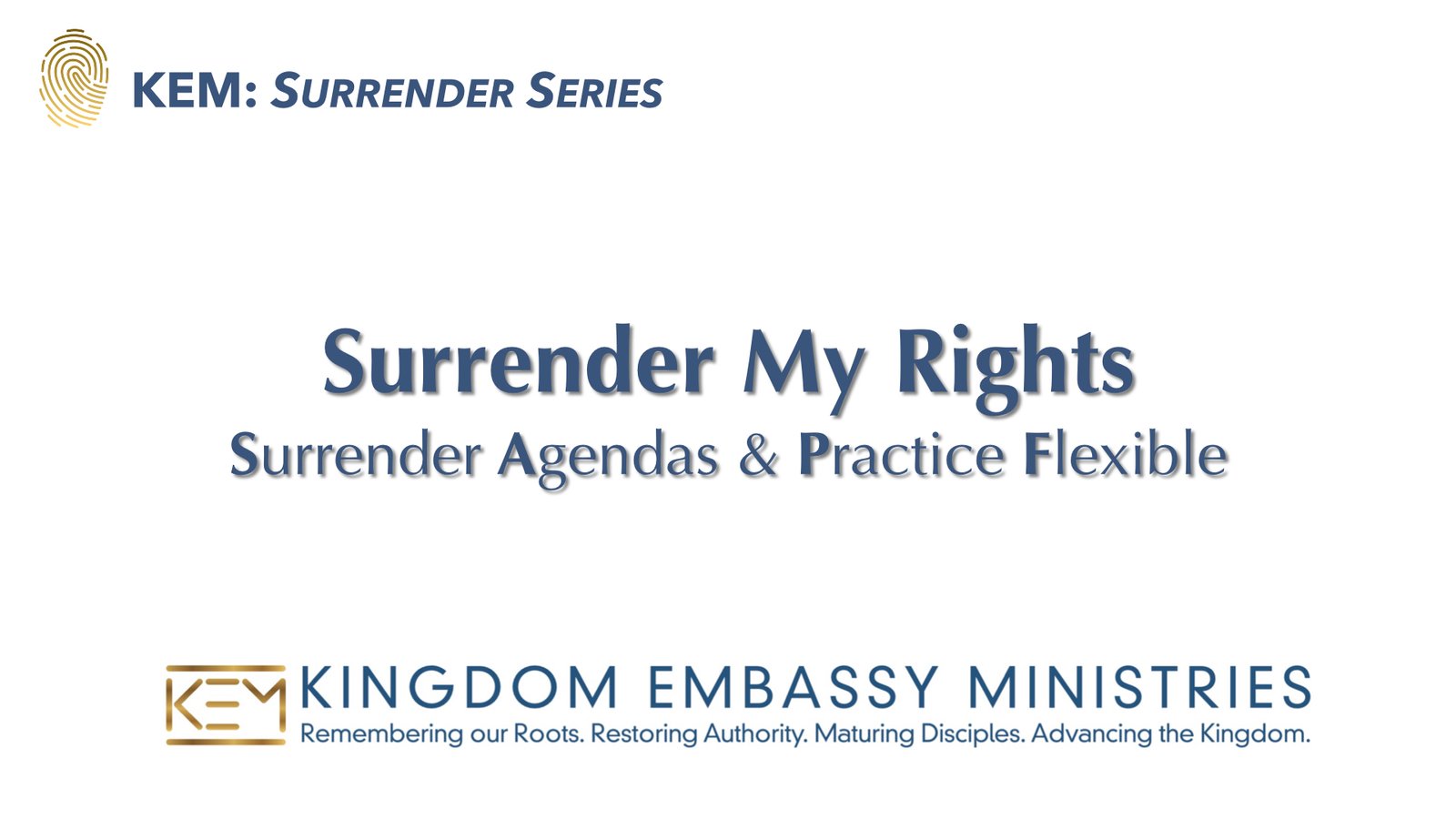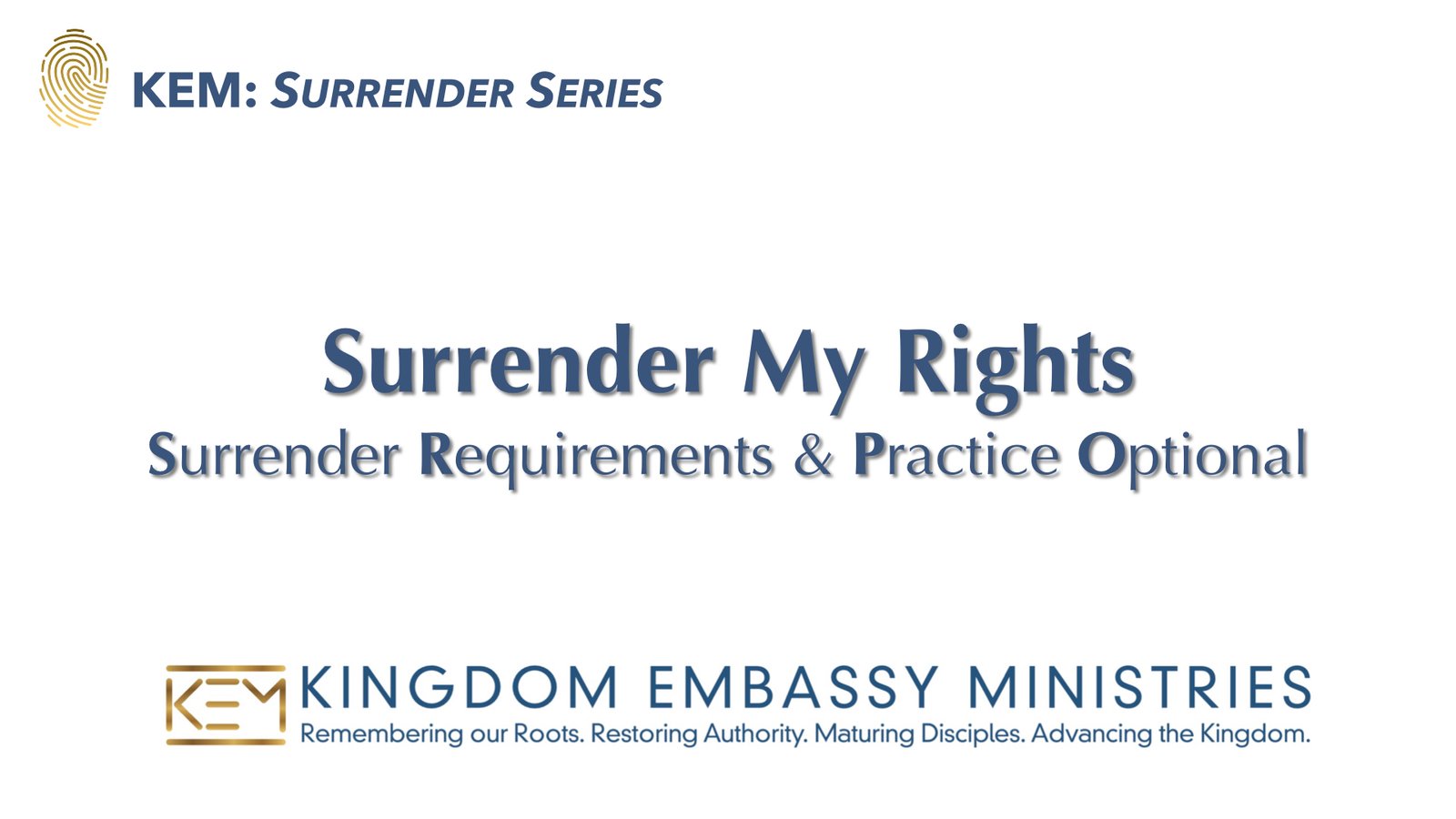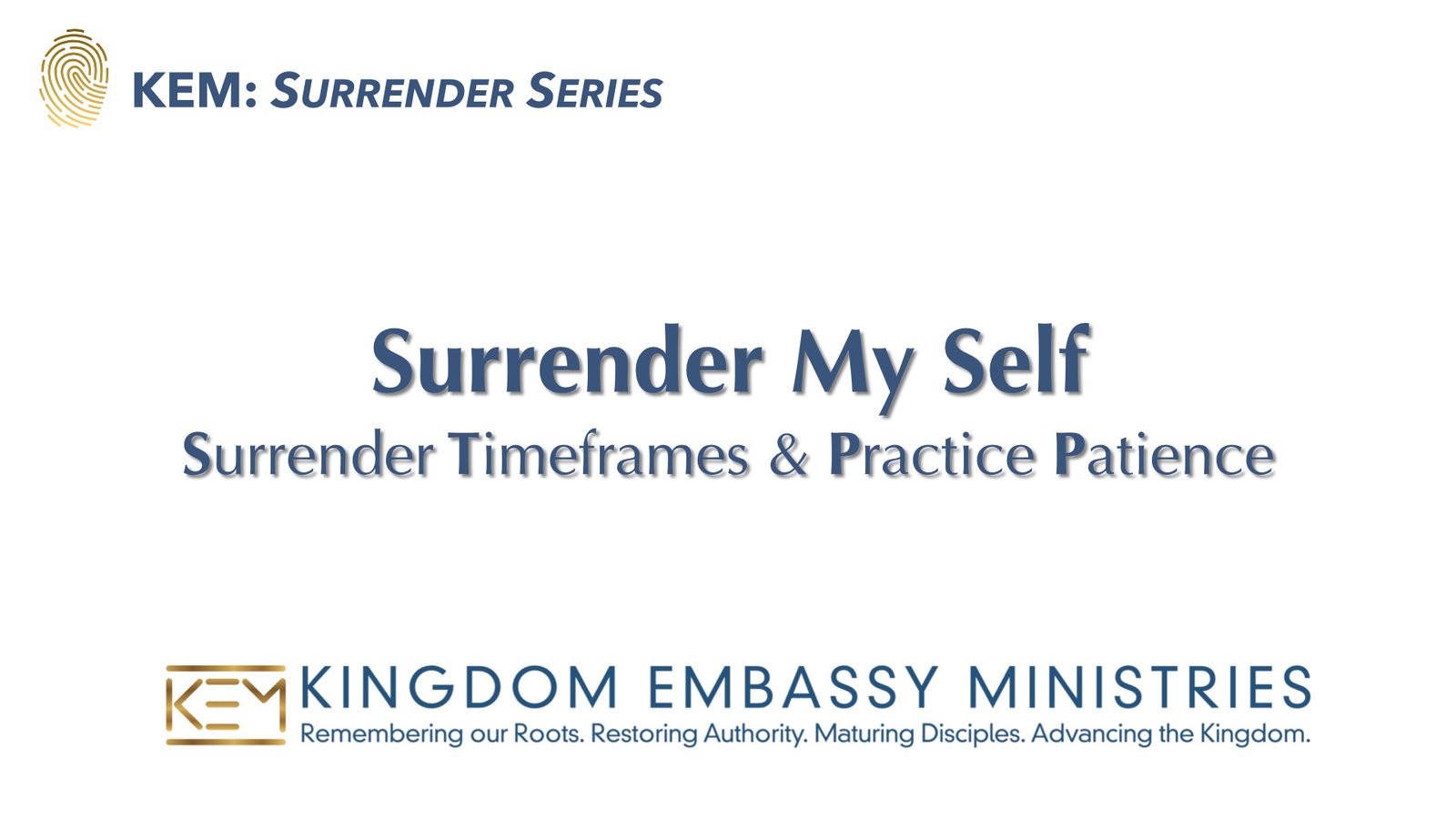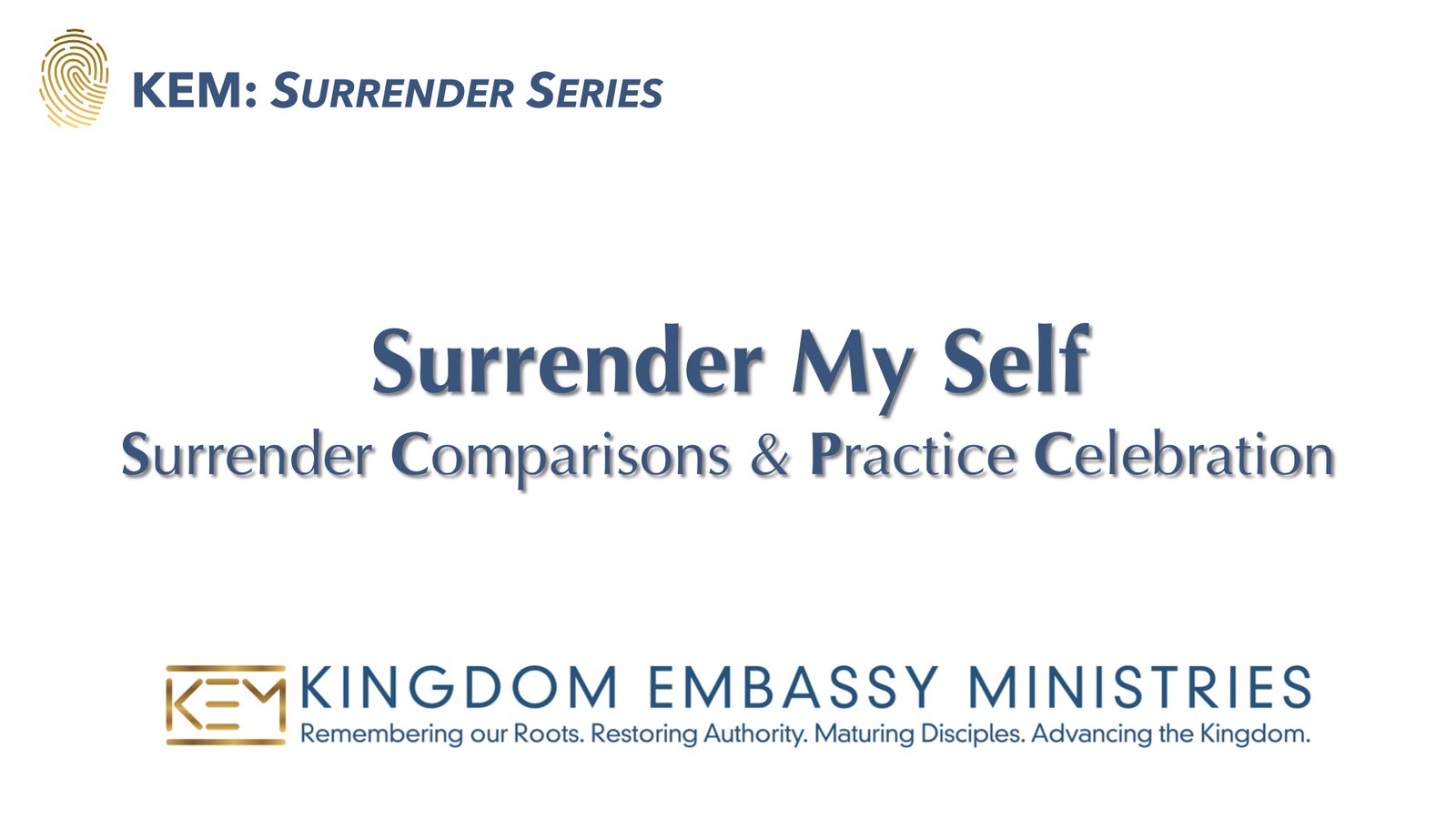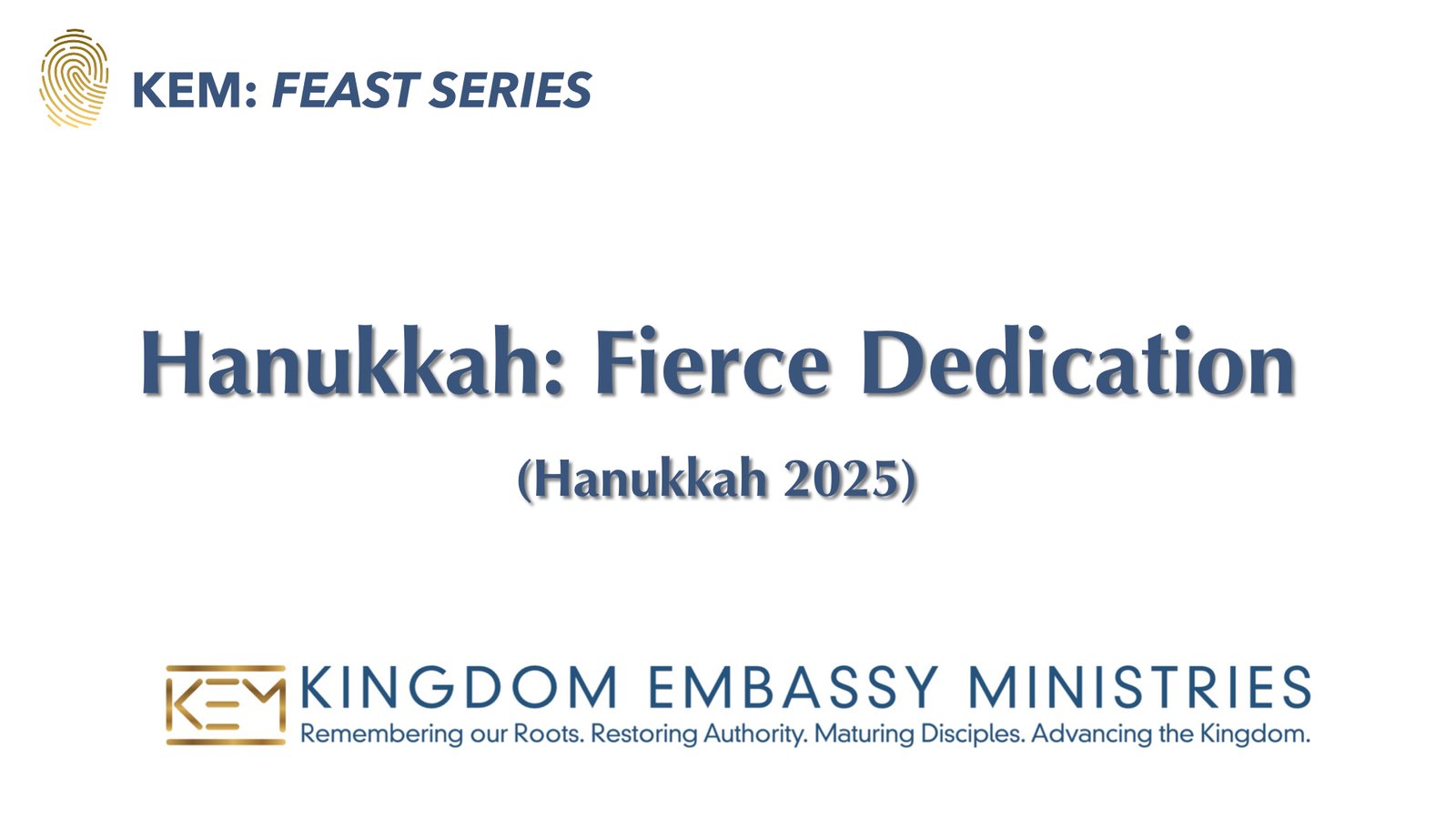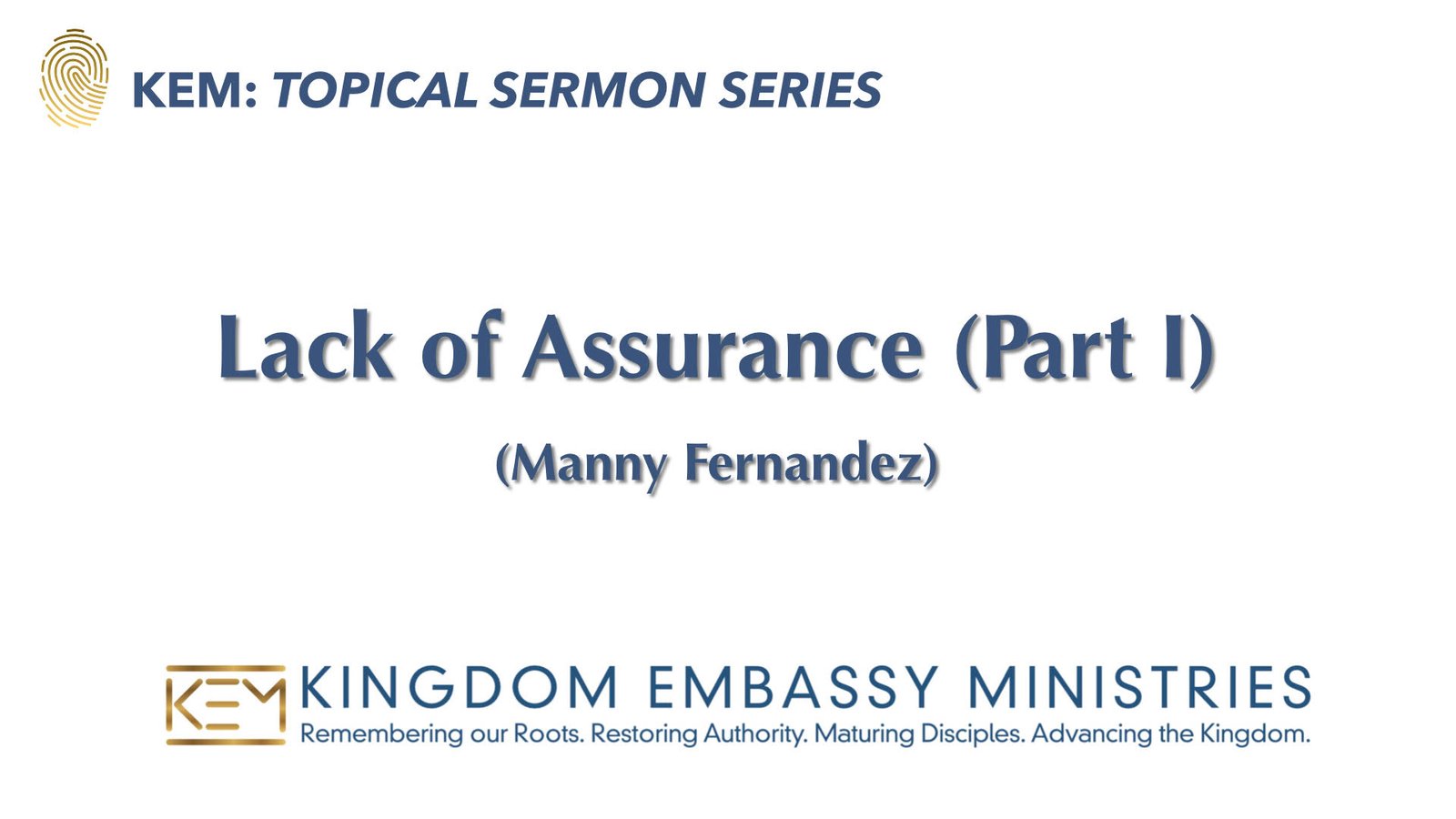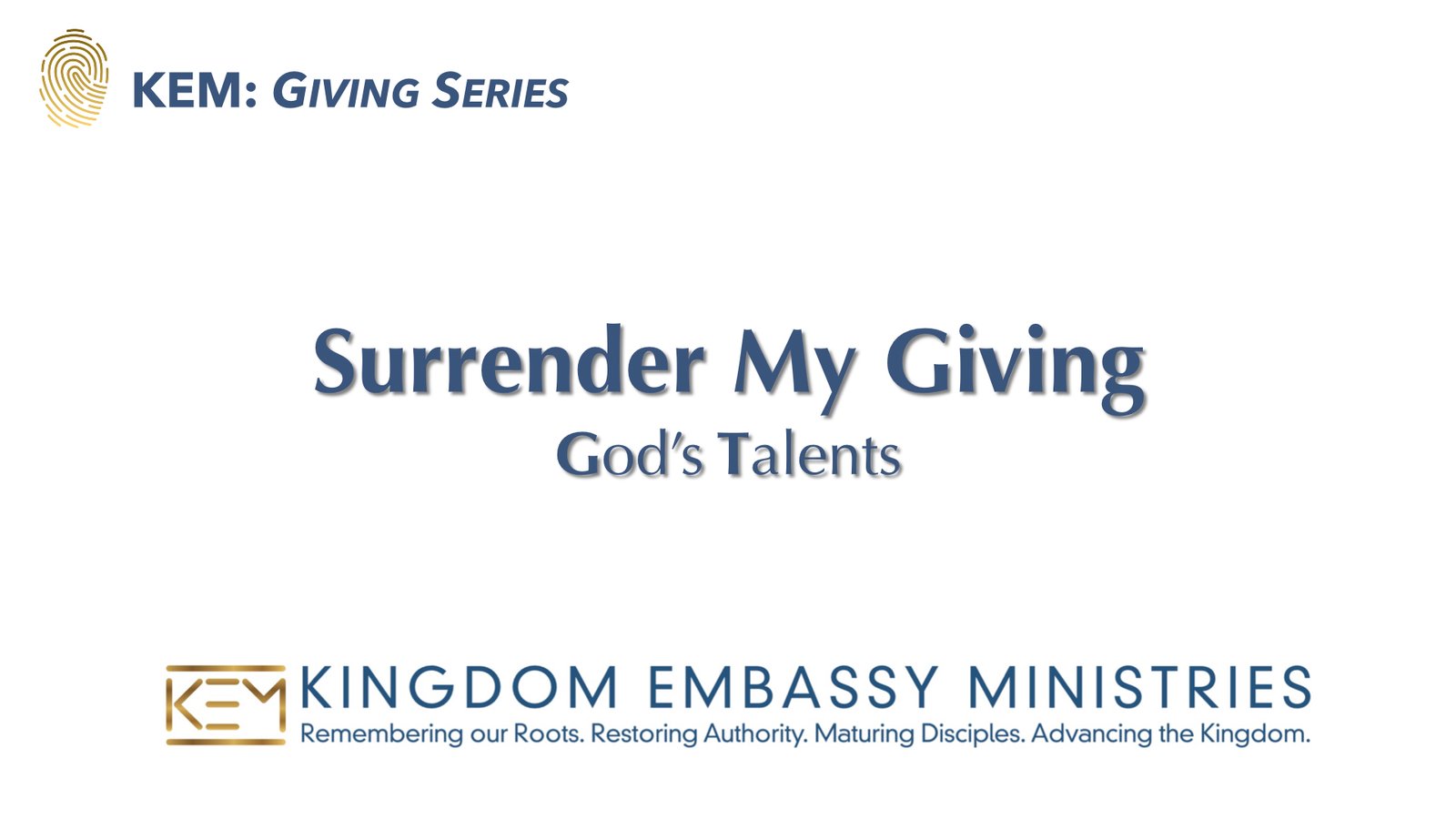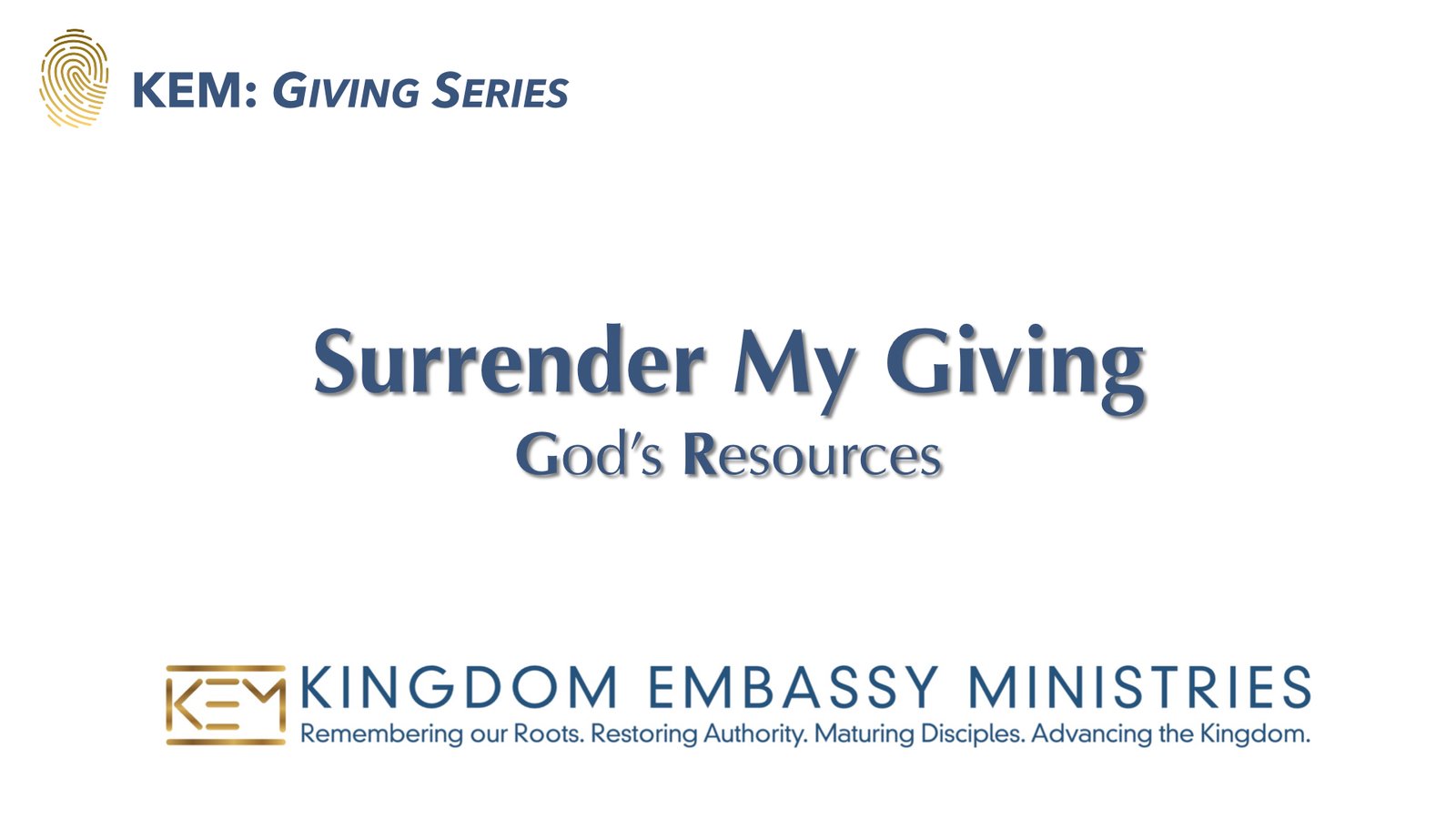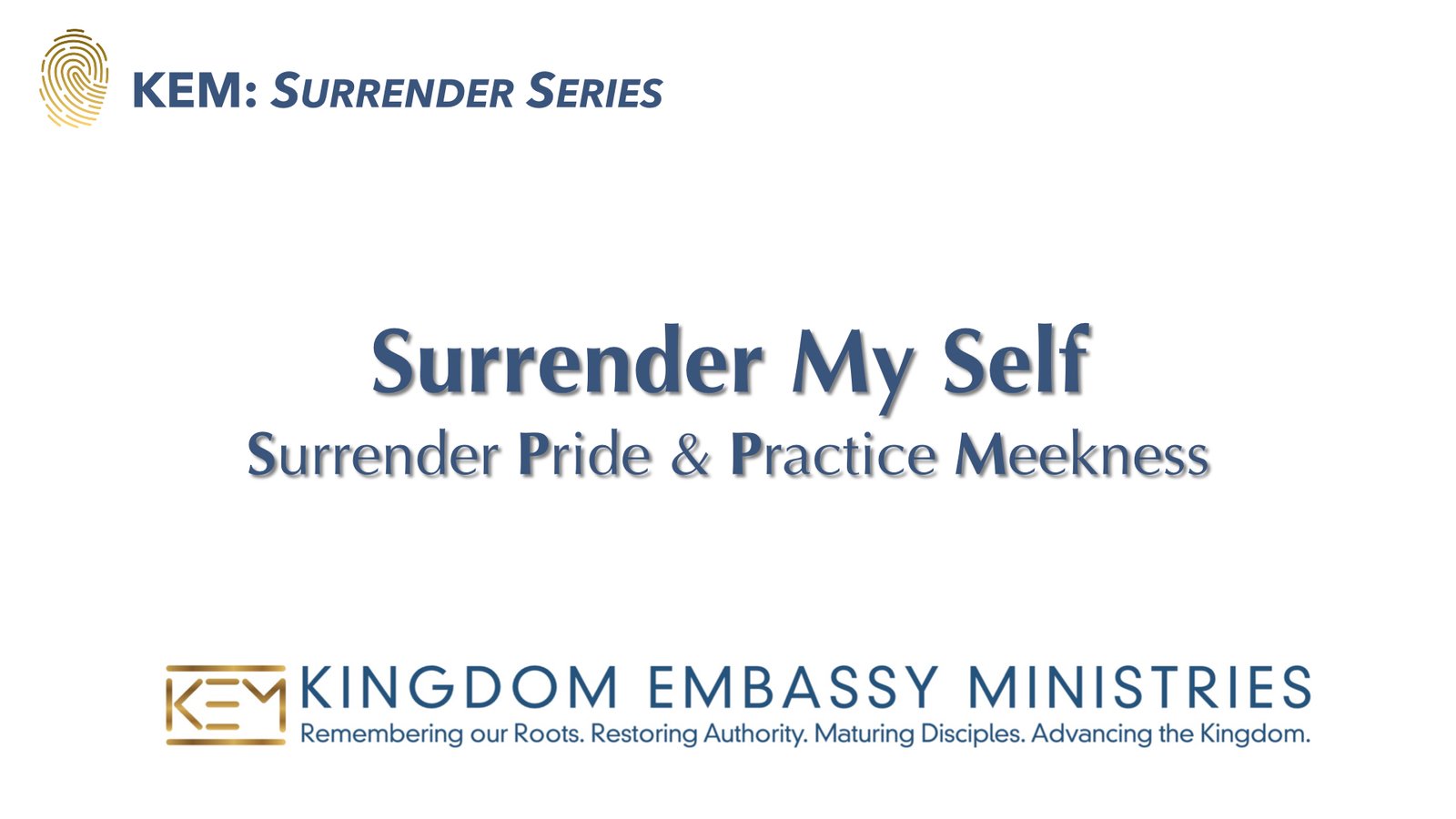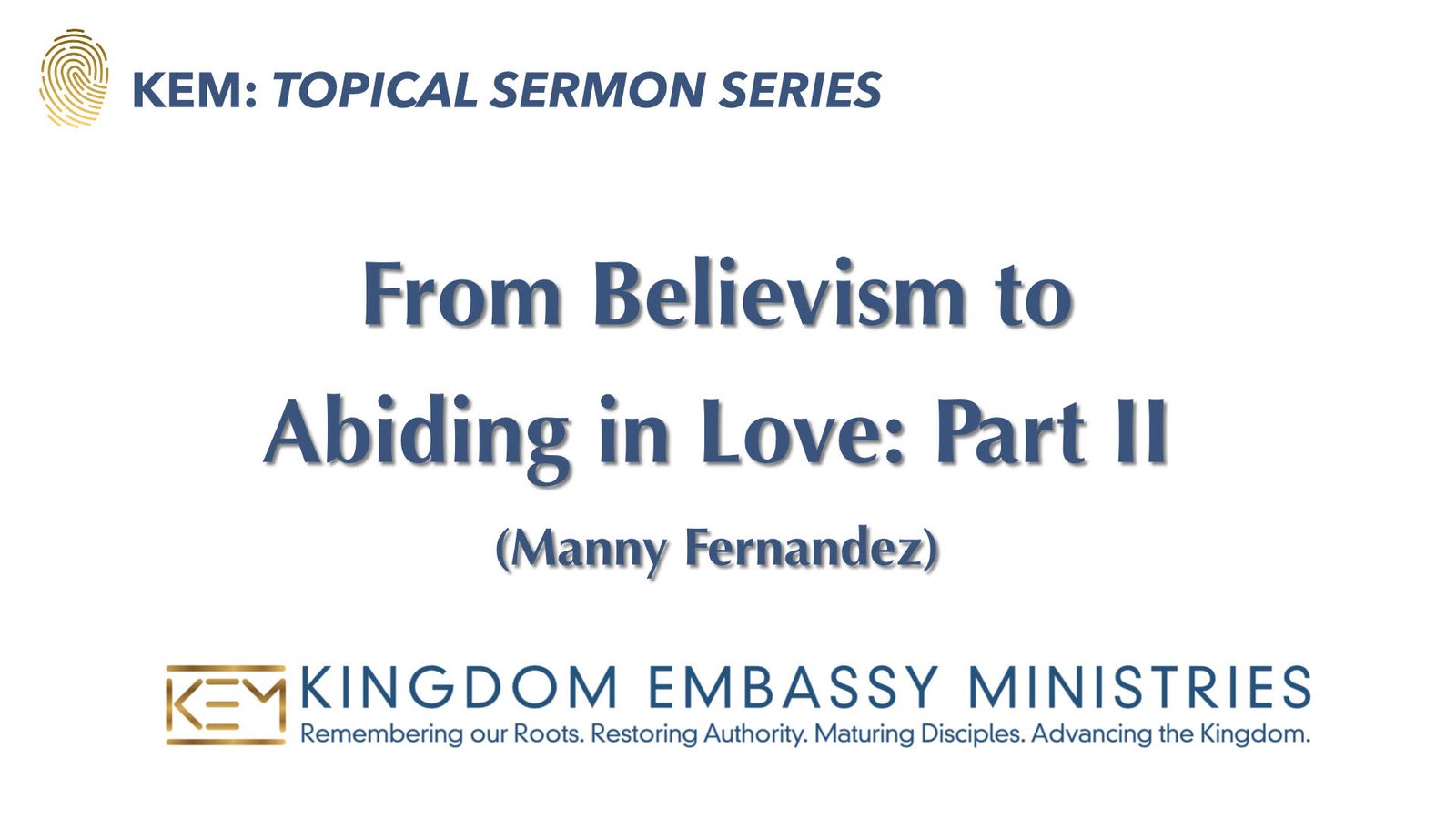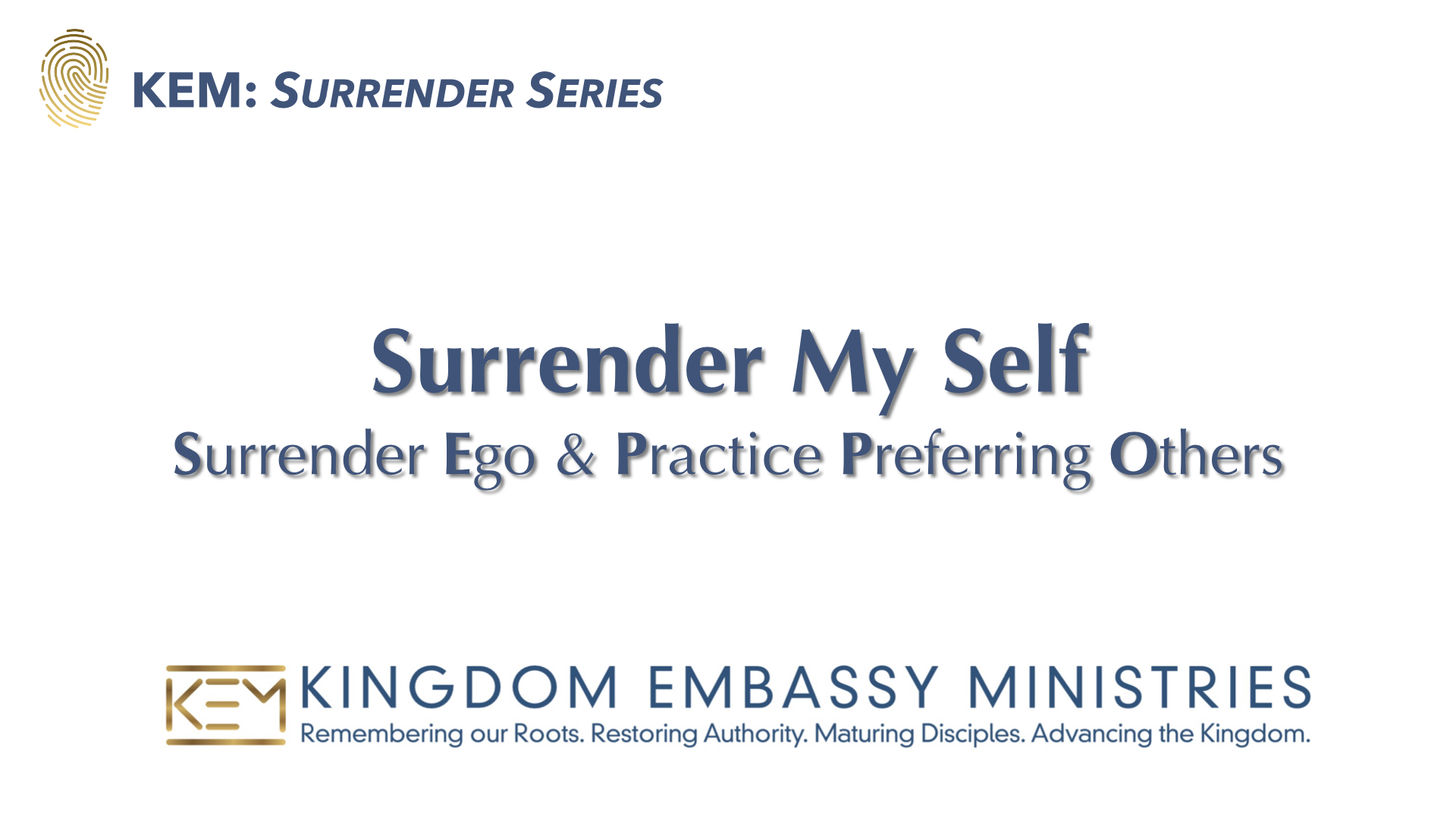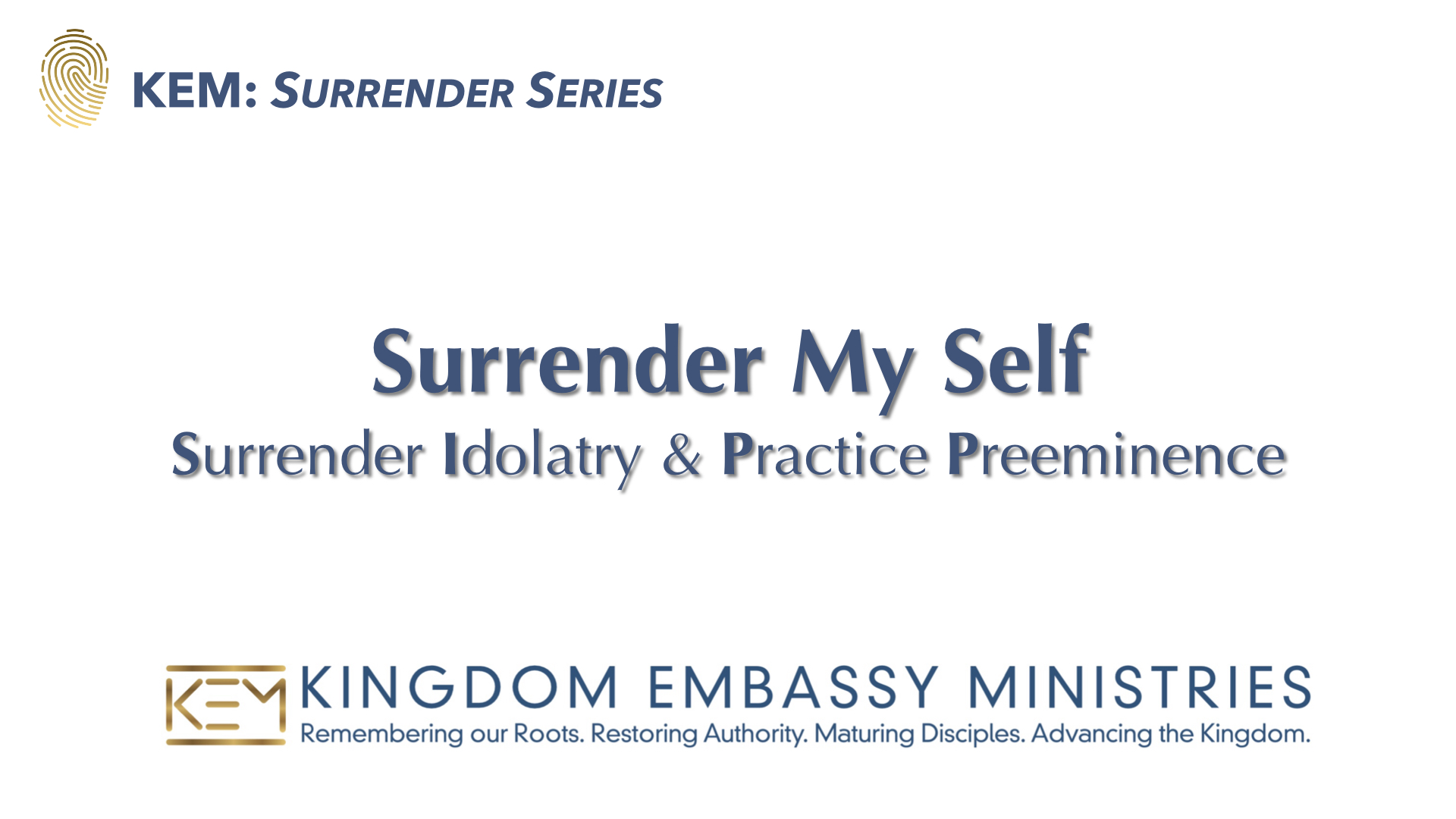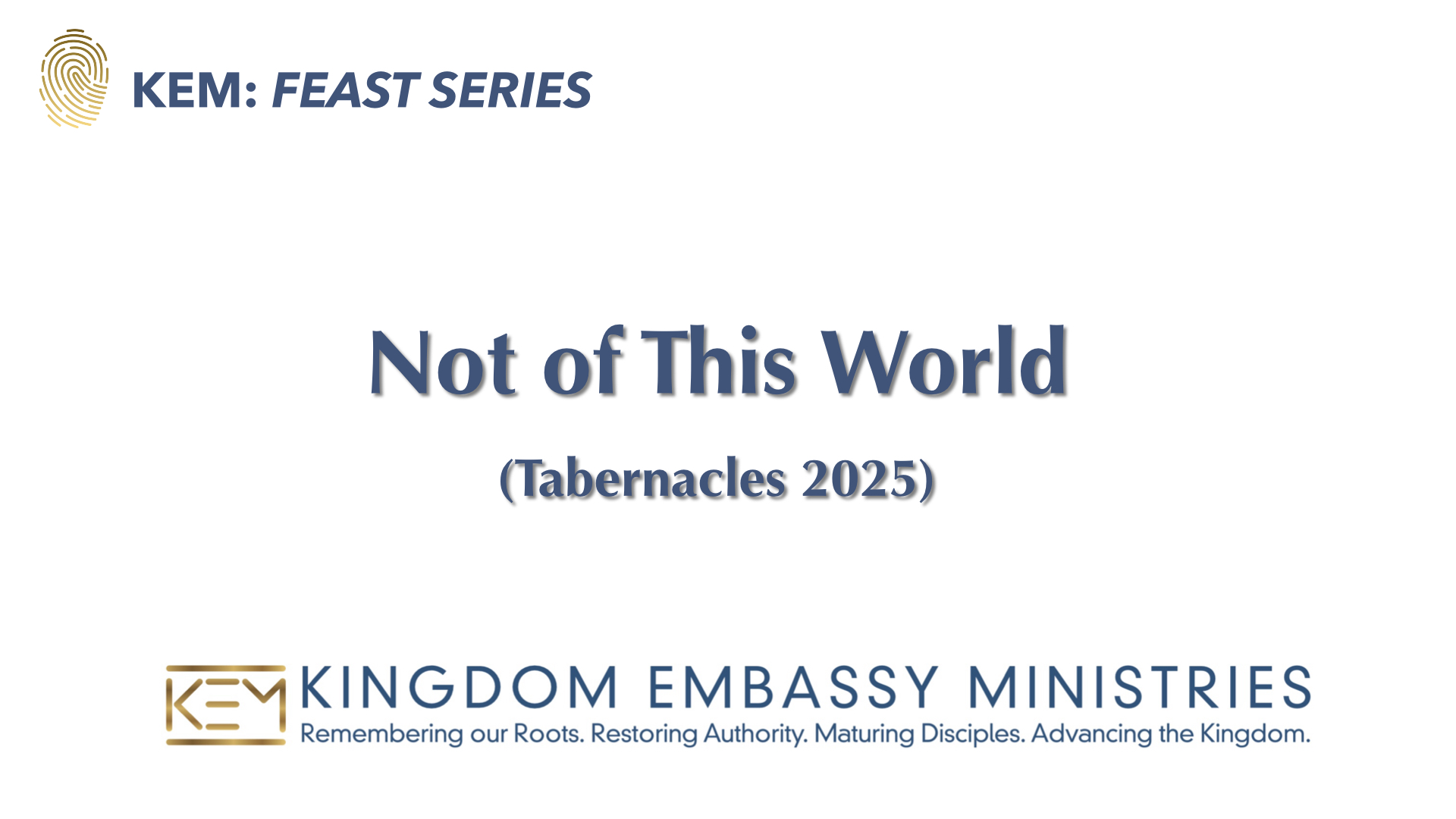Sermon Notes & Videos
2026-02-20 | Lack of Assurance (Part III) | Manny Fernandez
KEM Topical Sermon Series: 1 John 3:19 “By this we shall know that we are of the truth and reassure our heart before him;” 1 John 3:19 ESV
2026-02-13 | Surrender My Rights: Surrender Explanations and Practice Acceptance
Sermon Notes | Cease resistance; abandon control of your life entirely, and come into complete submission to God. That’s what it means to surrender. When Y’shua returns, some [...]
2026-02-06 | Surrender My Rights: Surrender Entitlements & Practice Gratitude
Sermon Notes | Cease resistance; abandon control of your life entirely, and come into complete submission to God. That’s what it means to surrender. When Y’shua returns, some [...]
2026-01-30 | Surrender My Rights: Surrender Agendas and Practice Flexible
Sermon Notes | Cease resistance; abandon control of your life entirely, and come into complete submission to God. That’s what it means to surrender. When Y’shua returns, some [...]
2026-01-23 | Surrender My Rights: Surrender Requirements and Practice Optional
Sermon Notes | Cease resistance; abandon control of your life entirely, and come into complete submission to God. That’s what it means to surrender. When Y’shua returns, some [...]
2026-01-16 | Surrender My Rights: Surrender Expectations and Practice Inspiration
Sermon Notes | Cease resistance; abandon control of your life entirely, and come into complete submission to God. That’s what it means to surrender. When Y’shua returns, some [...]
2026-01-09 | Lack of Assurance (Part II) | Manny Fernandez
KEM Topical Sermon Series: 1 John 3:19 “By this we shall know that we are of the truth and reassure our heart before him;” 1 John 3:19 [...]
2026-01-02 | Surrender My-Self: Surrender Timeframes and Practice Patience
Sermon Notes | Cease resistance; abandon control of your life entirely, and come into complete submission to God. That’s what it means to surrender. When Y’shua returns, some [...]
2025-12-26 | Surrender My Self: Surrender Comparisons and Practice Celebration
Sermon Notes | Cease resistance; abandon control of your life entirely, and come into complete submission to God. That’s what it means to surrender. When Y’shua returns, some [...]
2025-12-19 | 1-2 Maccabees | Hanukkah: Fierce Dedication
Sermon Notes | It was the Feast of Dedication, and Y’shua was fully aware of what was about to happen and to what He was alluding. Today, Jews [...]
2025-12-12 | Surrender My Giving: Gods Time
Sermon Notes | Time… it’s the most intriguing and least discriminating of all commodities. It doesn’t care how old you are, nor does it measure your height and [...]
2025-12-05 | Lack of Assurance (Part I) | Manny Fernandez
KEM Topical Sermon Series: 1 John 3:19 “By this we shall know that we are of the truth and reassure our heart before him;” 1 John 3:19 ESV
2025-11-28 | Surrender My Giving: Gods Talents
Sermon Notes | Every resource you have at your disposal comes from Yahweh and is Yahweh’s; thus, you own nothing. You are, however, commissioned to steward everything. And [...]
2025-11-21 | Surrender My Giving: God’s Resources
Sermon Notes | Originally, I was tempted to write a message titled “Surrender My Giving: My Resources, My Talents, and My Time.” Then it struck me: the entire [...]
2025-11-14 | Surrender My Self: Surrender Pride and Practice Meekness
Sermon Notes | Cease resistance; abandon control of your life entirely, and come into complete submission to God. That’s what it means surrender. When Y’shua returns, some of [...]
2025-11-07 | From Believism to Abiding in Love: Part II | Manny Fernandez
KEM Topical Sermon Series: 1 John 3:13-18 “Do not be surprised, brothers, that the world hates you. We know that we have passed out of death into life, [...]
2025-10-31 | Surrender My Self: Surrender Ego & Practice Preferring Others
Sermon Notes | Cease resistance; abandon control of your life entirely, and come into complete submission to God. That’s what it means to surrender. When Y’shua returns, some [...]
2025-10-24 | Surrender My Self: Surrender Idolatry & Practice Preeminence
Sermon Notes | Cease resistance; abandon control of your life entirely, and come into complete submission to God. That’s what it means to surrender. When Y’shua returns, some [...]
2025-10-17 | No Longer My Will: Complete Submission to God
Sermon Notes | How is it possible to keep your way pure? As with every other virtue, it is attainable only when living by the Word of God! [...]
2025-10-10 | Leviticus 23:36-39 | Clothed for My Wedding | The Great Day 2025
Sermon Notes | It was a betrothal, and today we have all but lost the dense significance of such customs. Once the image was diluted, it did not [...]
2025-10-03 | Leviticus 23:33-44 | Not of This World | Tabernacles-2025
Sermon Notes | The Word became flesh and pitched a tent among us. He tabernacled with us, and we beheld His glory. Yet He was here for what [...]

